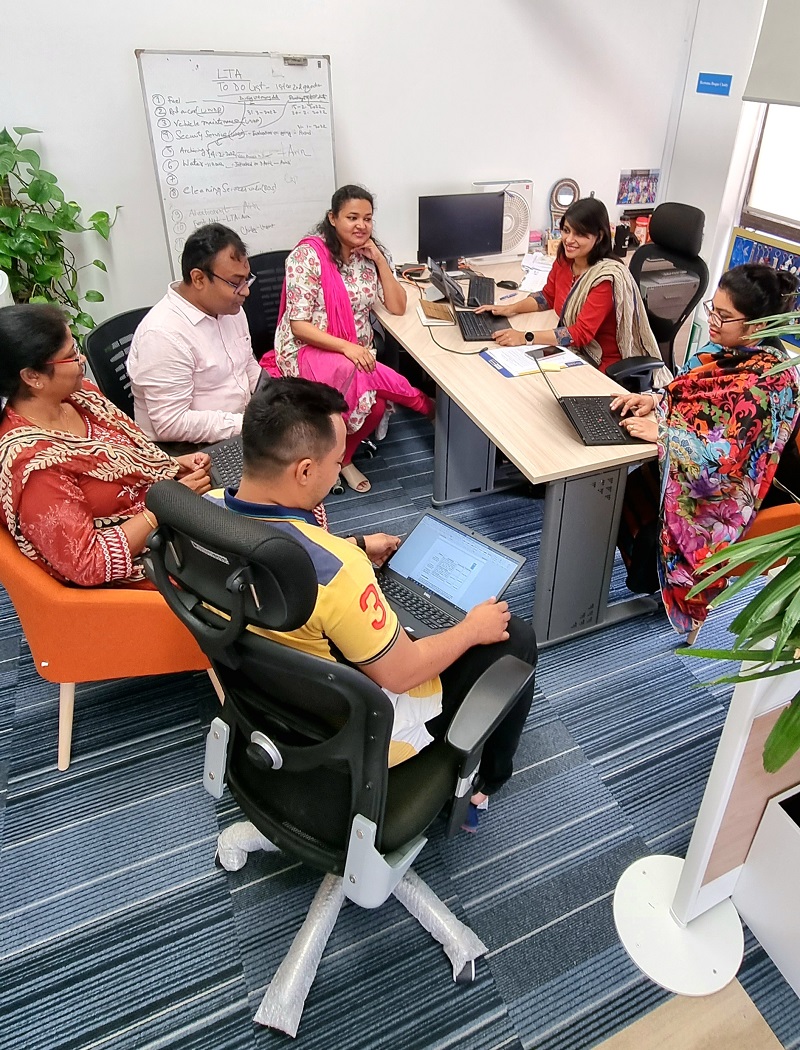Local Government Initiatives on climate change (LoGIC)
Background
Bangladesh is one of the top climate-vulnerable countries in the world. It is exposed to many climate-induced slow onsets and rapid extreme-weather events, such as increased salinity and cyclones in the coastal areas, endured floods and droughts and erratic rainfall.
Local Government Initiative on Climate Change (LoGIC) is a multi-donor collaborative initiative of GoB, UNDP, UNCDF, European Union (EU), Sweden and Denmark. It aims to enhance the capacity of vulnerable communities, Local Government Institutions and civil society organizations for planning and financing climate change adaptation solutions in selected climate-vulnerable areas. This project was initially designed for 4 years and based on an independent assessment and success of initial results; the project was extended up to June 30, 2023, for 2 years. To sustain the results and scale up the LoGIC model nationally to innovate and institutionalize the climate financing model across Bangladesh the development partners signed an agreement to extend the project for two years from June 2023 to June 2025, also extended the project working area in two districts of the Chattogram Hill Tracts (CHT), Rangamati and Bandarban. The local Government Division is the implementing lead of the project in partnership with UNDP and UNCDF.
LoGIC will support the most vulnerable 500,000 households based in hard-to-reach areas in 94 unions of 29 Upazila in 9 districts of Bangladesh. By achieving the objectives and results, the project will contribute to the reduction of poverty and climate vulnerability in Bangladesh. During the two-year bridging/extension phase a project proposal to be designed to submit to Green Climate Fund (GCF) in close collaboration with National Designated Authority (NDA) to harness the international funding for scaling up the model nationwide and to all climate stress areas.
Area of Work
Capacity strengthening of vulnerable people and local stakeholders for accountable planning and financing on CCA/DRR,
Enhancing access of LGIs and vulnerable households to climate funds,
Strengthen climate-resilient infrastructures,
Promote Climate Adaptive Livelihoods,
Institutionalizing the Climate Resilient Cooperative Model,
Broadening the scope of the Adaptation Innovation Centre and establishing climate risk insurance coverage for livelihood initiatives,
Evidence-based advocacy for financing local resilience.
Significant Achievements
LoGIC has established itself as a sustainable model for strengthening CCA actions. It has developed a systemic approach to deliver climate finance to the most vulnerable people and local governments with lower transaction costs and higher adaptation benefits. 70% of the project fund is directly invested in increasing the adaptive capacities of the most vulnerable households and communities.
The locally led adaptation model of LoGIC is a proven business case for the Local Government Division (LGD) to scale up nationally and showcase as a global best practice model. The project’s exemplary contributions to climate change adaptation in Bangladesh were recognized in the Government’s Mujib Climate Prosperity Report 2030 which was presented at COP26.
1.1 million most vulnerable people (63% women) are directly benefitted through LoGIC grants and capacity-building support. LoGIC provided grants to households to create a climate-resilient pathway, and to LGIs to implement community-level Climate Change Adaptation schemes.
LoGIC has developed a Climate Vulnerability Index to be used by the local government for allocating resources for climate adaptation.
LoGIC promotes market linkages and the financial inclusion of climate vulnerable households. 35,000 CRF beneficiaries (99% women) opened individual and group bank accounts. The women beneficiaries are leading their own group businesses, empowering them financially and socially.
USD 9.72 million was disbursed to 35,000 selected beneficiaries as financial support (CRF). 100% of CRF beneficiaries are implementing Climate Adaptive Livelihood Options (CALO) and 76% of beneficiaries have gained positive economic benefits.
USD 7.91 million was disbursed to 72 LGIs as PBCRG to implement 909 climate-resilient community-level schemes which benefitted 300,000 people (56% women). 68% of the adaptation schemes are co-financed from different sources.
Objectives
The main objective of the LoGIC project is improved and inclusive local-level planning and a strengthened financing mechanism for community-based climate change adaptation solutions through local governments.
The project will address the climate change impact in Bangladesh and intends to enhance the capacity of vulnerable communities, LGI and CSOs for planning and financing climate change adaptation solutions in the selected climate-vulnerable districts in coastal areas, wetlands and flood-prone areas.

 Locations
Locations














